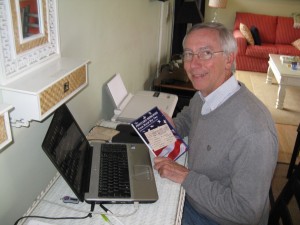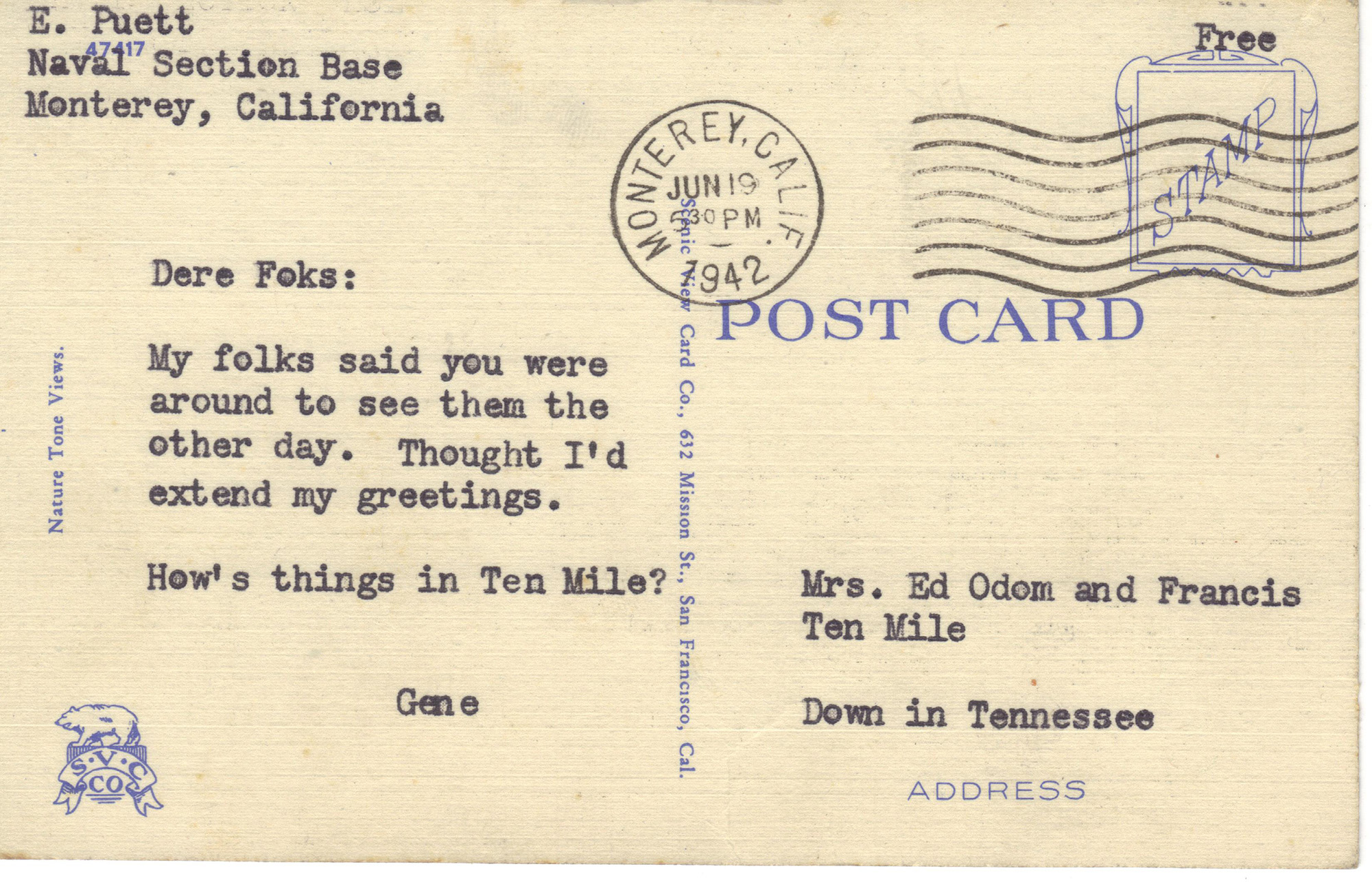By Fred Brown
John Schlatter collects postcards. But these are not your ordinary, wishing-you-were-here postcards with pretty pictures on the face and room for a few lines of scribbling on the back.
Since 2003, Schlatter (Knoxville ’72, ’73) has tracked down the yellowing, pen-and-ink postcards of World War II, the type of missives you find in an antique shop or peeling family albums of a bygone era. But there is a twist to Schlatter’s card collecting: He doesn’t stop with the collecting itself. He tries to locate those for whom the cards were originally intended or, in many cases, a family member or descendant, and returns them. For free.
After graduating from UT Knoxville with bachelor’s and master’s degrees, he served two years as an Army officer at Dugway Proving Ground, Utah. He returned to East Tennessee, where he was a reporter for The Oak Ridger newspaper and then a media relations representative for the Tennessee Valley Authority. Schlatter joined the Bechtel Corporation, a worldwide engineering and construction company, in 1981, and he held various positions in corporate communications until retiring in 2012.
Schlatter started collecting postcards as what he calls “a random act of kindness.” “My Greatest Generation parents had recently passed away. After their deaths, I came to treasure mementos from their lives, and I figured other Baby Boomers felt the same. I realized the World War II postcards I was finding on eBay and in antique stores were part of someone’s family history, so I set out to find the soldiers, their families and their stories,” he explains in a book he wrote about the collection, Postcard Memories from World War II: Finding Lost Keepsakes 70 Years Later, edited by friend and former colleague Sandra Plant (Knoxville ’73).

Researching the cards became easier as the Internet began to evolve, allowing him to delve into the national archives and World War II databases and genealogical websites. One day, he stumbled across a postcard with a UT connection. Searching eBay, he came across a 1942 postcard from “E. Puett” who was stationed at a naval base in Monterey, Calif. The card was simply addressed to “Mrs. Ed Odom and Francis Ten Mile (Tennessee).” “I knew a Eugene Puett on the UT staff,” Schlatter says.
Eugene “Gene” Puett (Knoxville ’41, ’47, ’53), who died in 2012 at the age of 93, was an attorney for the Municipal Technical Advisory Service, a part of UT’s Institute for Public Service, and a Navy veteran of World War II. He was married to Sammie Lynn Scandlyn Puett (Knoxville ’58, ’66), a UT Knoxville professor of journalism, university administrator and former commissioner of two state agencies, who died in October 2001. Sammie Lynn Puett was on Schlatter’s thesis committee in graduate school. Schlatter knew the couple did not have children, so he searched for more relatives listed in an obituary.
“It was a longshot, but I picked a nephew from Middle Tennessee. I called him and found out he was sort of the family historian and had a lot of Gene’s World War II memorabilia,” he says.
Schlatter’s hobby has been rewarding. He discovered that most of the “postcard people” he has found so far survived the war, “returned to their interrupted lives and, in many cases, had marriages of 60 or more years.” Others never made it home, with their stories ending with a white cross in a foreign cemetery, “a notation on a casualty list, and perhaps their name on a marker in the family plot or a monument on the courthouse lawn.”
In addition to his book, Schlatter writes a blog about his collecting and his research of those dusty old cards of the past. To read more, visit postcardmemorieswwii.blogspot.com.



